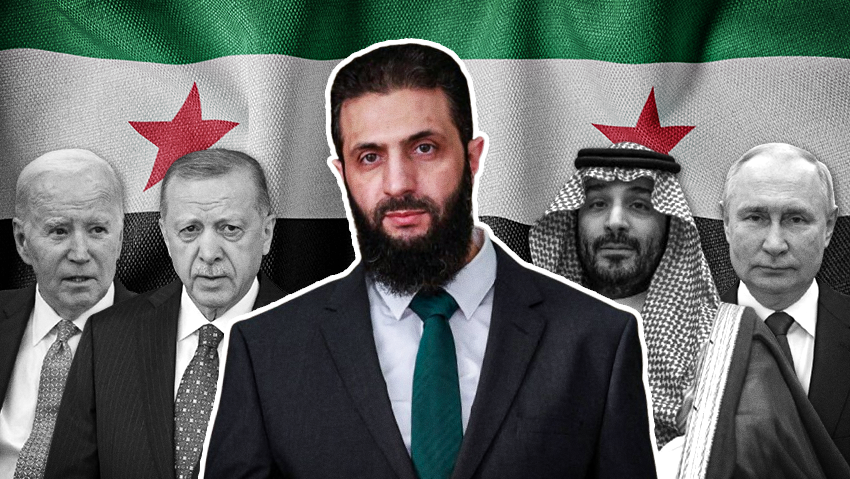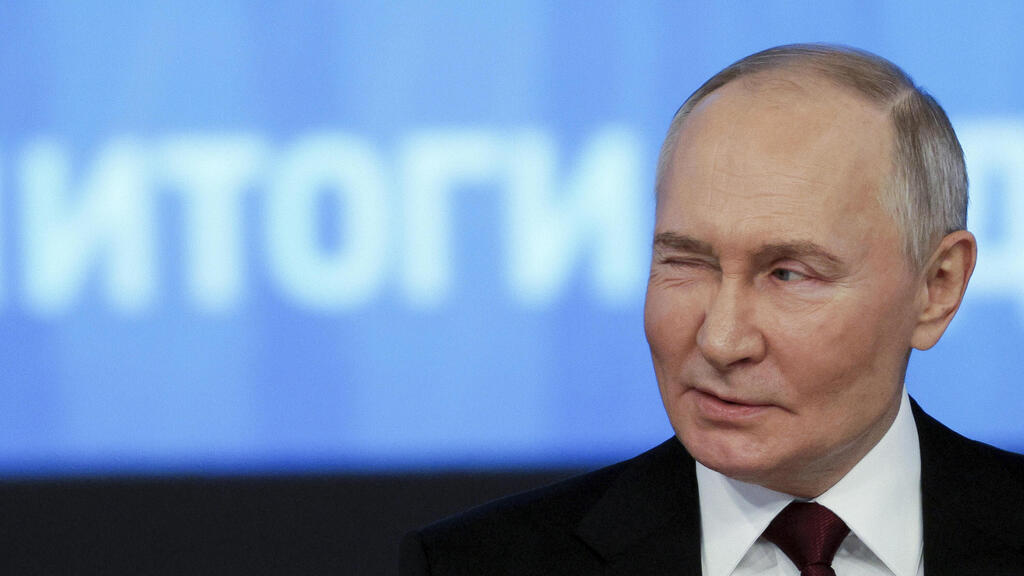Nearly one month after the fall of the Assad regime, the new leaders of Syria are facing many challenges as they prepare for the establishment of a committee for national dialogue that will compose a new constitution and government that they hope will unite Syria's fractured society.
Ahmad al-Sharaa, formerly known as Abu Mohammed al-Golani, is well aware of the need to present a clean image to the West if he hopes to receive legitimacy for his rule. But while he exhibits himself as someone who seeks peace, his past in al-Qaida still overshadows many of his promises for the future.
4 View gallery


French Foreign Minister Jean-Noel Barrot in Damascus on Friday
(Photo: Khalil Ashawi / Reuters)
Many countries are still involved in events in Syria and the flow of leaders to Damascus continues. On Friday, French Foreign Minister Jean-Noel Barrot and German Foreign Minister Annalena Baerbock arrived after representatives from Ukraine, the U.S., Turkey and Qatar, among others, visited the Syrian capital.
Russia, which alongside Iran had propped up the Assad regime and was directly responsible for the death of hundreds of thousands of Syrians, has also been trying to woo the new leadership even though it is hosting the deposed Syrian dictator in Moscow. Russian Foreign Minister Sergey Lavrov said earlier this week that Syria is a "sovereign nation" and has the right to end agreements signed with international partners, but added that there has been no request from the new leadership for Russia to remove its bases in Syria.
He said the establishment of the Russian bases were agreed through international treaties and in accordance with international law but there was no doubt that the regime change in Damascus would require certain adjustments regarding Russia's military presence in Syria, which could be negotiated by the parties.
Al-Sharaa said in an interview to Saudi media that Syria has strategic interests with Russia and that he hoped Moscow would not leave in a manner that was not compatible with the bilateral relations.
But it does not appear that the new Syrian leader has doubts whether to align himself with the West or the Russians. Moscow is not a real option for him.
Professor Eyal Zisser, an expert on Syria and Lebanon and the vice rector of Tel Aviv University, said he believes Al Sharaa will not lean on Russia but does not want a fight with the Russians. "He wants to project himself as moderate," Zisser said. "He does not want confrontation and has enough troubles. Israel has deployed troops in Syria, Iran and Hezbollah are lurking in the corner. He wants to end things with Moscow on a positive note."
Zisser believes there is an open historic account for the Syrian opposition forces with Russia, which was quick to provide a sanctuary for Bashar Assad.
"The United States can more easily reach agreements with Al Sharaa than Russia, which is still weary of Islamist groups, can.
The new regime needs money to rebuild and rehabilitate Syria. Assad relied heavily on revenue from the drug trade and a new source of income is now needed. "He needs Qatar, the Gulf nations, the U.S. and the West," Zisser says. "He needs sanctions lifted so that there can be trade and investments as well as financial assistance."
Qatar, aware of those needs, began establishing its position in Syria soon after the Assad regime fell, by transferring funds and ensuring its involvement in any future process. Al Sharaa's rebranding as a moderate has been helpful to portray Islam as more than terrorism. As in its dealings in Gaza, Doha appears to be providing assistance, but has other interests as well and is using its close ties to Turkey to achieve them.
Turkey, which has been fighting the Kurds in northern Syria for years, has two main interests. One is the return home of Syrian refugees that have sought shelter within its borders, and the other is the fight against the Kurds who under the auspices of the U.S. and Syrian opposition forces (SDF) have taken control of large areas in northern and eastern Syria.
4 View gallery


Turkish President Recep Tayyip Erdoğan, Emir of Qatar Sheikh Tamim bin Hamad Al Thani
( Photo: Janos Kummer / Getty Images, AFP)
"Our goal is to solve the crisis in the northeast," Al Sharaa said in the interview. "The Kurds are an inseparable part of the Syrian population and their forces will be incorporated in the Syrian defense forces."
Turkish President Recep Tayyip Erdoğan said Ankara would not accept the Kurds from the PKK Party – identified as a terror group, and a majority of Kurdish fighters in SDF as legitimate representatives of Syria. This will challenge Al Sharaa to decide where his alliances lie.
"The new Syrian regime is heavily reliant on Turkey to rebuild the country after Assad," said Dr. Galia Lindenstrauss, a senior researcher at the Institute for National Security Studies (INSS). "Al Sharaa would likely choose to establish his leadership before he takes on the Kurds in a fight. "
Syrian leader Al Sharaa in an interview with the BBC
(BBC NEWS)
Turkey has financial problems of its own and cannot allot funds for the Syrians, but may rely on its alliance with Qatar, she said.
Get the Ynetnews app on your smartphone: Google Play: https://bit.ly/4eJ37pE | Apple App Store: https://bit.ly/3ZL7iNv
Saudi Arabia is also working on its ties with the new regime. "Riyadh wants stability in Syria and has a central role to play," Al Sharaa said. "I hope Iran reconsiders its involvement in the region. We are seeking balanced relations with everyone and Iran must align itself with the Syrian people."
Whether or not Al Sharaa has really changed is unclear even to the many diplomats who met with him. Officials in Israel are concerned that he may be fooling the West and insist Israel's hold on the Syrian part of Mt. Hermon and the buffer zone on the Golan Heights will continue until things become clear.






